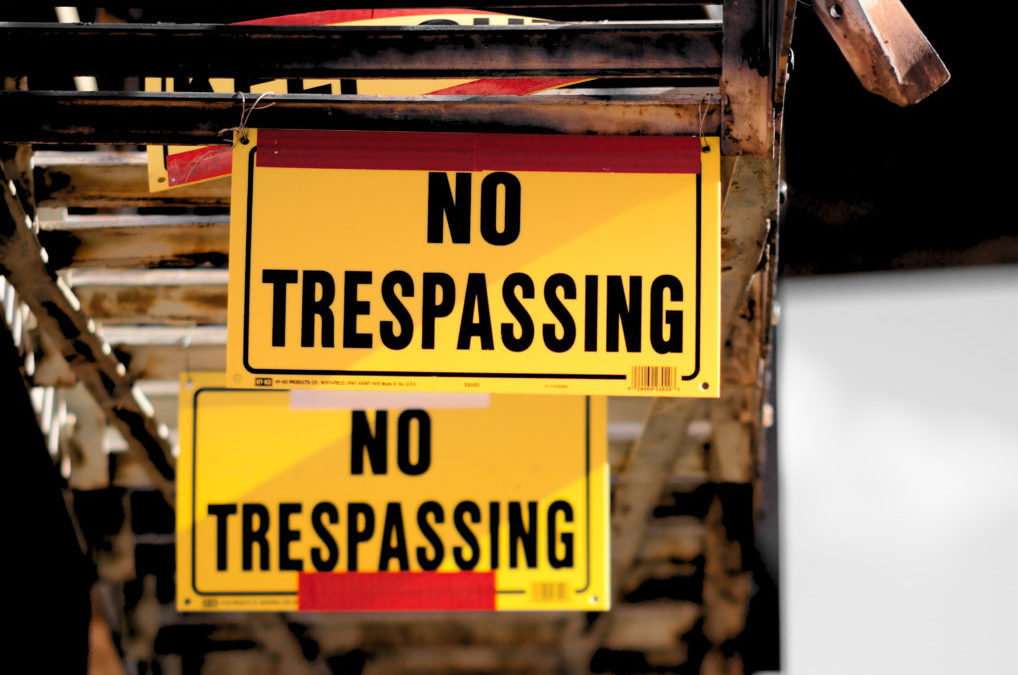by Kayla Morgan, MA, P-LPC
“Daring to set boundaries is about having the courage to love ourselves, even when we risk disappointing others.” – Brene Brown
When working with individuals and families who are intentional about making big changes in life, the conversation usually turns to BOUNDARIES. Boundaries are one of the most crucial aspects of a living a healthy life and experiencing lasting relationships. So crucial, that a lack of boundaries will eventually expose us to unhealthy people and situations. Simply put, a boundary is a line- a marker- that makes a clear distinction of the things we are responsible for. They consist of our thoughts, feelings, and values and tell us who we are and who we are not. Most importantly, they permit us to live a life of freedom!
Drs. John Townsend and Henry Cloud define freedom as the ability to make choices based on your values, rather than choosing out of fear, guilt or obligation- without feeling manipulated or coerced. Being confident in who you are, and what your responsibilities are, offers the sense of freedom you may be desperately trying to find.
For example, physical boundaries help us determine who, how, and when someone may touch us. Mental boundaries allow the freedom to have and express our own thoughts and opinions. Emotional boundaries help us to understand our own feelings, deal with them, and withdraw from the harmful, sometimes manipulative emotions of others.
These markers define us. They communicate what is me and what is not me; what I want and what I don’t want; what I will allow and what I won’t allow; what I am responsible for and what I am not responsible for. Boundaries protect us by keeping the good in and the bad out.
Imagine the boundary is like a door: sometimes we need to shut out negative and harmful influences and other times open the door to invite in good influences to encourage us. A boundary is not meant to be so rigid that you never allow people to come in, but the door allows us to open up when it’s appropriate.
Boundaries consist of: YOUR emotions, YOUR actions, YOUR thoughts, YOUR choices, YOUR values, YOUR love. You are NOT responsible for feelings, thoughts, choices or behaviors of OTHERS. It is NOT your job to fix others or to take responsibility for the people in your life.
Our emotions offer us insight into this and usually tell us something is wrong. When we find ourselves angry, resentful or exhausted, there may be a boundary violation- meaning someone has crossed our boundary or we didn’t value ourselves enough to set the boundary.
God gives us the perfect example of setting boundaries. He clearly defines in scripture what he thinks, feels, plans, allows and won’t allow- along with our likes and dislikes. Like a good father, God sets limits with his children to keep us safe from harm and to set us apart from the world. In the New Testament, Jesus offers a great example of setting boundaries with others. Jesus had to separate himself from others to refresh and spend time with God. Luke 15:16 states, “Jesus often withdrew to the wilderness for prayer.”
Boundaries are an important part of our lives. But how do we set them?
- Learn to say NO. Examine what’s important to you and what you want to spend your time and energy on. No is a complete sentence, and an explanation is not required. Don’t apologize for setting limits in your life. It’s important to communicate clearly and directly your feelings, intentions, dislikes, and values.
- Use a calm tone. Practice this by clearly stating what you think, how you feel, and what you prefer. This practice, sometimes called “sharing your reality,” can oftentimes take the emotion out of an otherwise emotionally charged situation and allow you to speak in an open, honest, and direct way.
- Distance yourself when appropriate. At times, you may need to physically or emotionally distance yourself from a person or situation. Learning as Jesus did, when to withdraw, and when to come near, is an important part of any healthy relationship.
- Address boundary violations early. No need to let a lot of time pass stewing on things. It just creates a distance that can work against you in having a voice in your circumstance.
- Use your support system. Chances are, there are trustworthy people in your corner who can help you with this process in a healthy way.
- Don’t start with setting the most difficult boundaries first. Start by setting those limits that are least risky and will give you a foundation to build confidence moving forward.
- PRACTICE, PRACTICE, PRACTICE and DON’T give up!Healthy boundaries allow us to experience self-respect and leave harmful situations. They allow us to express our values to others and how we expect to be treated. Healthy boundaries give us permission to be more aware of our own feelings and keep us from attempting to fix or control other people.
One last important thought: setting boundaries in our lives and relationships is not only good for us, it’s good for the people we do life with. Practice allowing others to give voice to their own thoughts, feelings, and values- without judgement.
“Compassionate people ask for what they need. They say no when then need to and when they say yes, they mean it. They’re compassionate because their boundaries keep them out of resentment.” – Brene Brown


Recent Comments